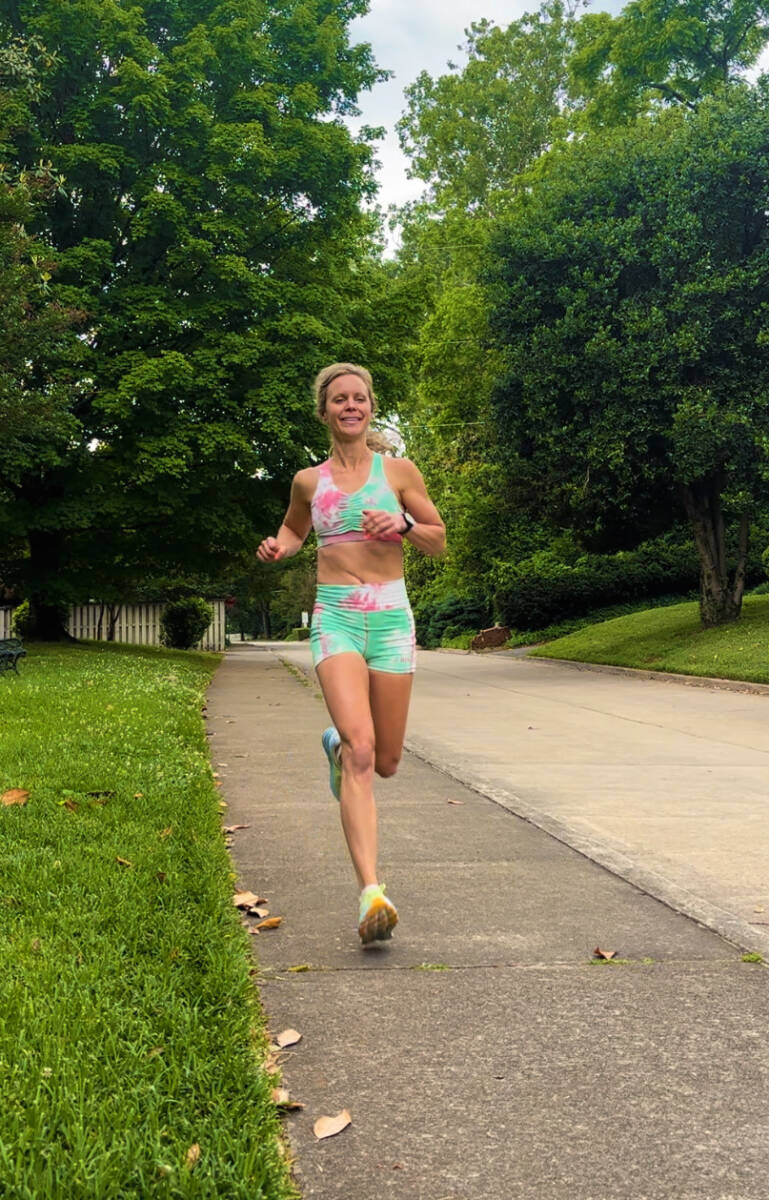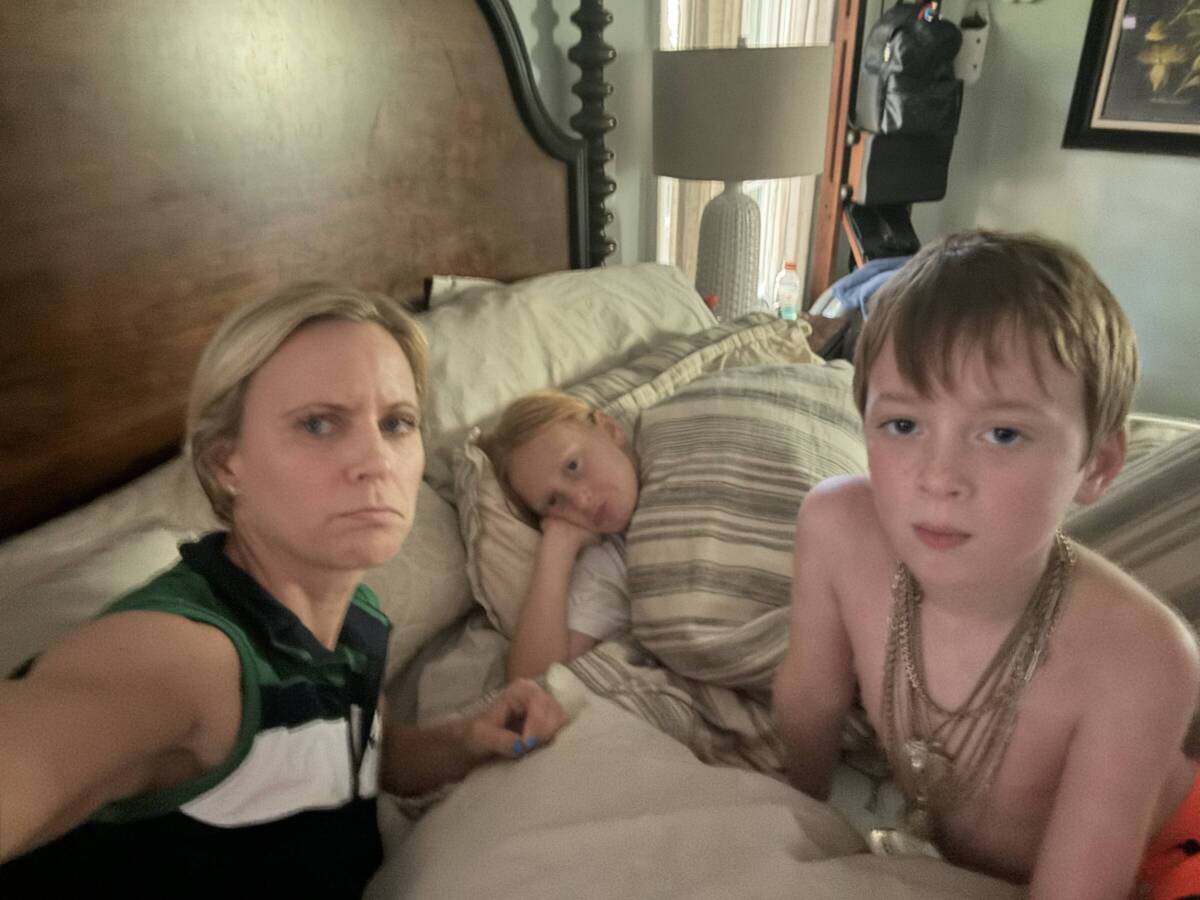How to Conquer Menopause Fatigue
Hormone fluctuations gave me major fatigue this past fall so that running felt terrible. But I did my research and learned that lifestyle changes such as proper sleep hygiene, supplements, and exercise can help separate menopause and fatigue! I’m sharing what I learned so that you can feel better and stay active.

This past fall I struggled with major fatigue. I got my labs drawn and learned that many of my sex hormones had bottomed out and that perimenopause may be the reason I was struggling. At the same time, I was coaching several perimenopausal runners struggling with fatigue, making it hard for them to complete their runs. Menopause and fatigue unfortunately go hand in hand.
Table of contents
- 6 Tips to Manage Menopause Fatigue
- Tip 1: Take care of yourself.
- Tip 2: Find your support system.
- Tip 3: Consider Hormone Replacement Therapy (HRT).
- Tip 4: Know your levels.
- Tip 5: Hire a running coach and strength coach.
- Tip 6: Mind your eating habits.
- Vitamins for Menopause Fatigue There are also vitamins for menopause fatigue that can help with your sleep quality and energy levels, particularly if you are deficient in some areas. Dr. Hart Kress and Seville suggest the following (which I have taken and noticed a positive change): Magnesium Glycinate or L-threonate is amazing for promoting sleep and relaxation. Dr. Hart Kress recommends 150-300 mg daily, taken after dinner to prep the body for rest. If your ferritin is below 50, Vitron-C is a great iron supplement mixed with Vitamin C for better iron absorption and is well tolerated. Vitamin D is commonly low in people and can make you feel fatigued. The nutrient is also important for strong bones and overall mood. Getting your Vitamin D levels from blood work can tell you if you’re deficient and if so, how much you should supplement with. Vitamin D levels below 40 ng/ml require prescription Vit D. A joint health supplement such as Previnex Joint Health PLUS and collagen such as Modere BIOCELL can help with menopause fatigue and joint pain as it can make your joints feel better and keep you on track with your exercise routine. Adaptogenic herbs, such as Maca powder for energy and Ashwagandha for anxiety, can help symptoms a lot. Personally, I use the OM Master blend of mushrooms in my coffee and love it.
The great news is that there are ways to combat menopause and extreme fatigue. I have seen improvements in how I feel and in the women I coach with small lifestyle changes as well as medical interventions.
I got with Dr. Christine Hart Kress, a certified menopause practitioner, and menopause expert Emma Seville of Your Menopause Toolkit, on ways to conquer peri menopause and fatigue so you can keep doing what you love—run!
Let’s go!
6 Tips to Manage Menopause Fatigue
Tip 1: Take care of yourself.
Good nutrition, exercise, mindfulness, and sleep hygiene are crucial tenets of midlife care, notes Dr. Hart Kress.
Aim to eat balanced meals rich in protein and antioxidants, exercise at least half an hour a day, take some time for stillness each day (I like the Calm App!), and set yourself up for success with sleep quality. This entails getting to bed and waking up at the same time every day, keeping your bedroom between 65-68 degrees Fahrenheit, and limiting alcohol and blue light exposure before bedtime. Read more sleep hygiene tips here.
Seville adds women going through perimenopause should take naps as needed, manage stress by walking in nature or doing yoga, delegate chores, and put their health first.
“Think about the food you eat, the things you watch, the people you mix with. What is stressing you out? How can you change these things? Put your health and longevity first!” she urges.
I realized that my son and puppy coming down every night and taking up the bed was messing with my sleep. Now, I am to sleep in as much as possible to catch extra shuteye. Before, I would get out of bed when I wake up–now I don’t allow myself to get up until a certain time. The extra rest has helped a lot.
Tip 2: Find your support system.
Seek guidance from a Certified Menopause Practitioner to review your perimenopause or menopause symptoms, says Dr. Hart Kress. You can find one here.
A menopause practitioner will help develop a plan before your fatigue impacts family relationships and work performance.
Tip 3: Consider Hormone Replacement Therapy (HRT).
Talk to your doctor or menopause practitioner about hormone treatment or Menopausal Hormone Therapy (MHT) as part of your treatment plan. These medications which include bioidentical hormones can help stabilize hormone fluctuations and reduce fatigue, notes Dr. Hart Kress.
For example,
- Decreasing progesterone is often a culprit for fatigue. So how to combat progesterone fatigue? With progesterone replacement therapy! “Often fixing sleep with progesterone is a simple fix…women do so much better with sleep!” says Dr. Hart Kress. Indeed, I started taking a low dose of progesterone at night and my sleep is so much better. No longer do I wake up too early every morning with my mind racing.
-
Sleep is often interrupted during menopause due to lower estrogen levels which can trigger hot flashes and night sweats. Estradiol therapy is the gold standard for treating these conditions, notes Dr. Hart Kress.
- Also, testosterone, aka our “energizing hormone”, declines during perimenopause commonly leading to fatigue. Again, MHT (or HRT aka Hormone Replacement Therapy) can help stabilize hormone fluctuations and reduce your fatigue. I also started taking a low dose of testosterone and my energy throughout the day and while running is so much better.
Tip 4: Know your levels.
Get your blood levels drawn. “Having baseline labs to check for insulin resistance, low ferritin levels, Vitamin D deficiency, and thyroid issues is very important during this stage of life,” Dr. Hart Kress shares. “Often fixing these levels and other nutritional deficiencies is all that is needed to address fatigue.”
I’ve had personal experience with this, with supplements helping very much! I recommend my athletes get their labs done every 6 months.
Tip 5: Hire a running coach and strength coach.
Working with a running coach (like me!) can help hold you accountable to your over-40 fitness goals while also helping you brainstorm solutions for common menopausal health issues such as fatigue.
They can also arrange your running schedule so that you can optimize your training, high-energy days, and recovery—as well as adjust as needed. As noted, consistency in running is important for mitigating menopause symptoms and feeling better. Similarly, a strength coach or physical therapist, can help you safely master weight lifting moves so you get (and stay!) strong, says Seville. Having someone in your corner, especially when it feels so hard to be active, can be a game changer.
Tip 6: Mind your eating habits.
Food is fuel, and you need to pay attention to the type of fuel you take in and the timing of it, says Seville. Seville advises perimenopausal women to eat a protein-rich meal before 10 a.m. to help with hormone balance.
She also says perimenopausal women should avoid sugar, alcohol, and xenoestrogens which can exacerbate menopausal symptoms. Instead, look for phytoestrogens such as in soy or flaxseed. Also, avoid caffeine after mid-day which could mess with your sleep.
Vitamins for Menopause Fatigue
There are also vitamins for menopause fatigue that can help with your sleep quality and energy levels, particularly if you are deficient in some areas. Dr. Hart Kress and Seville suggest the following (which I have taken and noticed a positive change):
- Magnesium Glycinate or L-threonate is amazing for promoting sleep and relaxation. Dr. Hart Kress recommends 150-300 mg daily, taken after dinner to prep the body for rest.
-
If your ferritin is below 50, Vitron-C is a great iron supplement mixed with Vitamin C for better iron absorption and is well tolerated. Vitamin D is commonly low in people and can make you feel fatigued. The nutrient is also important for strong bones and overall mood. Getting your Vitamin D levels from blood work can tell you if you’re deficient and if so, how much you should supplement with. Vitamin D levels below 40 ng/ml require prescription Vit D.
-
A joint health supplement such as Previnex Joint Health PLUS and collagen such as Modere BIOCELL can help with menopause fatigue and joint pain as it can make your joints feel better and keep you on track with your exercise routine.
- Adaptogenic herbs, such as Maca powder for energy and Ashwagandha for anxiety, can help symptoms a lot. Personally, I use the OM Master blend of mushrooms in my coffee and love it.
Why does menopause make you tired?
It may seem like middle-aged women are tired all the time. That’s due to hormone fluctuations that happen during perimenopause (the 5-10 years before menopause) and menopause (when a woman has not had a period for 365 days).
As Dr. Hart Kress puts it: A woman’s hormone levels are wildly fluctuating until the last menstrual period when the ovaries stop producing the three main hormones: estrogen, progesterone, and testosterone.
These changes can affect mood, sleep, and energy levels. Declining levels of progesterone make sleep a challenge with a lot of women reporting difficulties falling asleep but more often, staying asleep. Combined with hot flashes and night sweats also due to hormone fluctuations, lack of quality sleep can lead to daytime fatigue.
Seville adds that changing hormones can lead to heavier periods–which can lead to low iron, spurring fatigue. Lower progesterone can also trigger thyroid problems, she warns, which can–you guessed it–make you feel tired.
You can beat menopause tiredness
I have seen firsthand women overcome perimenopausal and menopausal fatigue with lifestyle changes such as natural supplements, intentional run training for their stage of life, and HRT. I have experienced the differences myself.
Runners are tough and meant to endure. Like with most challenges we face in life, it takes time to figure out the solution—but it is there if we are patient and don’t give up. If you’re interested in having a helping hand in your run journey through menopause, please check out my run coaching services. I would love to help you!
Have you dealt with menopause-related fatigue?






